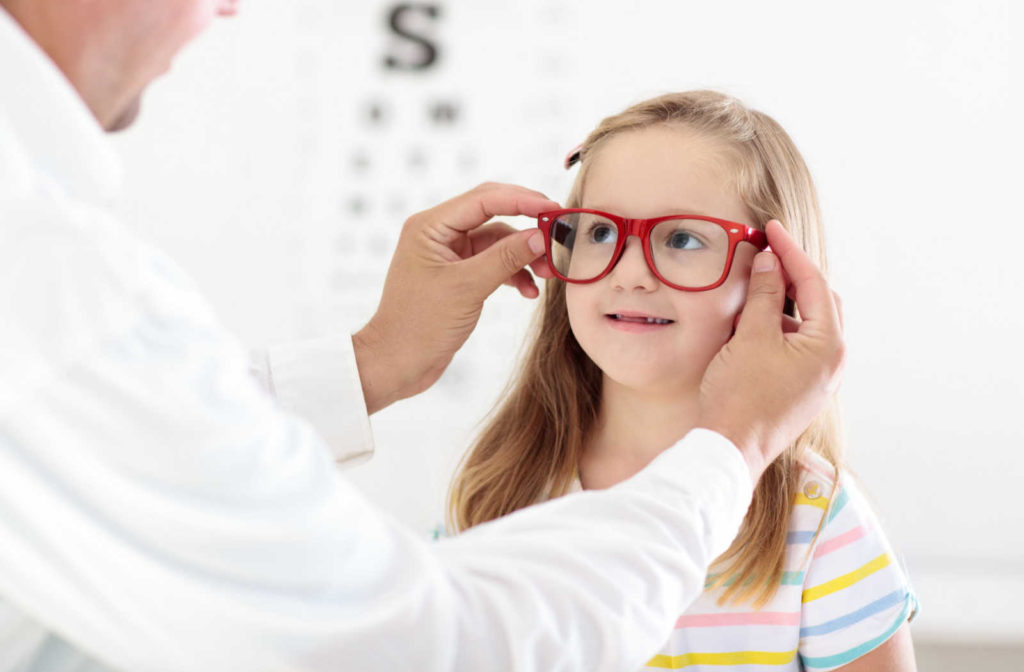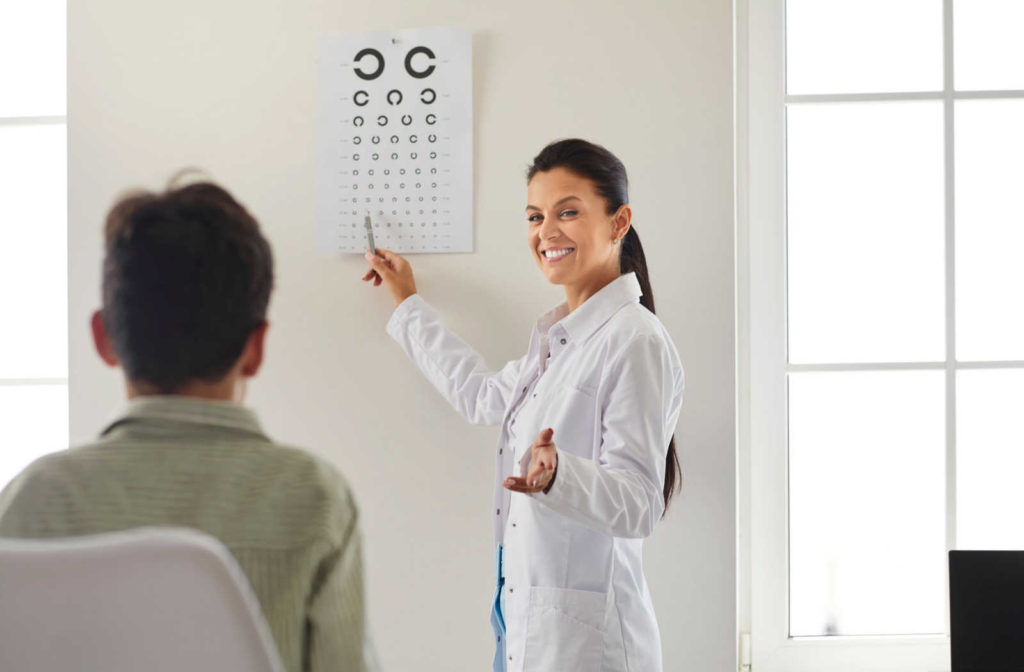Eye exams are important for children, especially as they grow and go through school. Eye conditions like myopia or hyperopia can develop, affecting their vision and other aspects of their health.
Regular visits to the eye doctor can help your child’s vision develop normally and function at its best. With this in mind, how often should your child have an eye exam?
Continue reading to learn more about children’s eye exams, why they’re important, and how often your child should have one.
How Often Should Your Child Have an Eye Exam?
How often your child needs an eye exam depends on their eye health and vision needs. In general, your child should have an eye exam before they start school and at least every 2 years following if they have healthy eyes and no vision impairments. However, if your child has an eye or health problem, they may need to see the optometrist more frequently.
An eye exam before they start school can set your child up for visual success.
Eye Exams Before School
Your child’s vision develops as they grow, and regular eye exams are vital for protecting their vision and ensuring they’re hitting their vision milestones. Eye problems can arise anytime during childhood, potentially affecting their school performance. Setting up your child’s eye exams before the school year begins can help your eye doctor identify and treat issues so they don’t affect your child during the school year.
Why Are Eye Exams Important for Children?
Eye exams are important because they help protect your child’s eye health and vision as they grow. Your child’s eyesight allows them to interact with the world as they learn, play, and make new friends.
Approximately 80% of your child’s learning is visual, so an eye problem can significantly affect their daily life. Many assume eye conditions aren’t a significant problem, but an untreated issue can affect school performance, social interactions, and self-confidence.
Eye conditions can develop early in childhood—an estimated 20% of preschool children have a vision problem. If an eye problem develops early in childhood, it can progress for years without being noticed. Conditions like myopia can worsen, placing their vision and eye health at risk.
Vision Screenings Aren’t Eye Exams
Many schools provide screenings for students to assess their vision. However, these screenings are not sufficient substitutes for a comprehensive eye exam. Not every vision problem affects the clarity of your child’s eyesight, so your eye doctor must take a detailed look at the eyes.
According to the American Optometric Association, 75% of vision screenings miss vision problems, and nearly 61% of children with an identified eye condition through a vision screening don’t follow up with their optometrist.
Your child may have an undiagnosed eye problem that affects their daily life if they skip their eye exam. The best way to ensure your child’s vision functions at its best is with regular eye exams with your optometrist. They can get a complete picture of your child’s eye health and vision.

Know When to Book an Eye Exam for Your Child
Many eye conditions can affect your child’s eye health and vision, making it difficult to focus in school or struggle in social situations. Your child should always have an eye exam if they have vision-related problems.
It can be difficult to know when your child has a vision problem because they may not know themself. They may assume everyone sees as they do. As your child’s guardian, it’s important to look for signs that show a potential eye problem.
Bring your child in for an eye exam if you notice any of the following symptoms:
- Needing to sit close to the front of the classroom or screens to see
- Rubbing their eyes constantly
- Having difficulty seeing distant objects
- Struggling with headaches
- Having problems focusing during school or other activities
Is It Time for Your Child’s Next Eye Exam?
Regular eye exams can help protect your child’s vision, with your eye doctor assessing their development and diagnosing problems as early as possible. Remember to book your child’s exams at least every 2 years or follow your doctor’s recommendation.
Contact your optometrist at Crum Optometric Group when it’s time for your child’s next eye exam.





